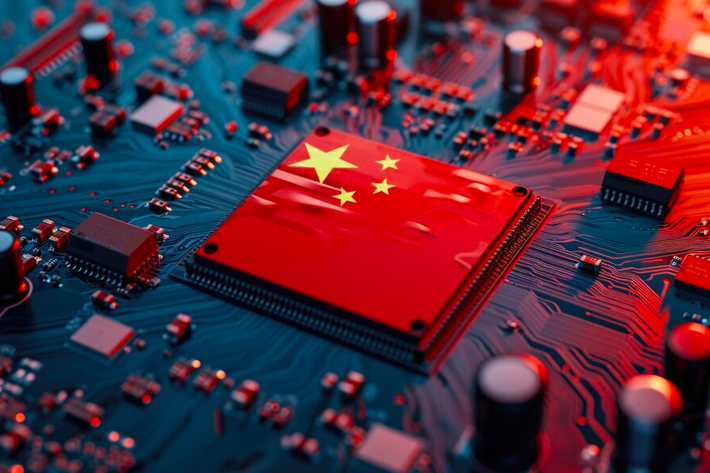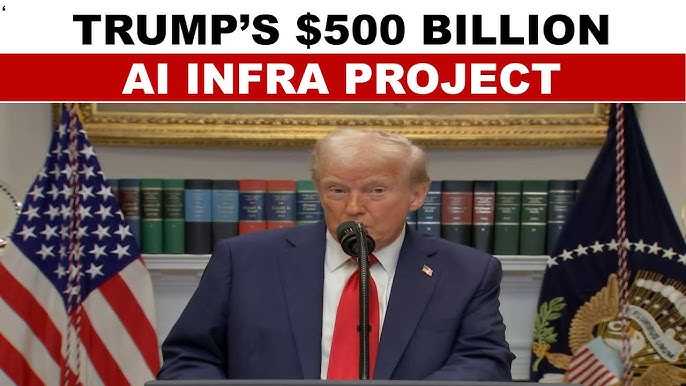U.S. Regulatory Changes Fuel Growth in Tech Industry

February 28, 2025
The U.S. tech industry is experiencing an unprecedented period of growth, thanks in part to a series of regulatory changes that are designed to support innovation while ensuring ethical business practices. As tech giants and startups alike continue to expand their reach, these new policies are having a transformative effect on the industry. With the Biden administration’s emphasis on data privacy, antitrust enforcement, and tech-driven infrastructure investments, the future looks promising for the tech sector in 2025.
This article explores the key regulatory changes affecting the tech industry, how these shifts are fostering growth, and what businesses and consumers can expect in the coming years.
The Rise of Tech in the U.S. EconomyOver the past few decades, the tech sector has become a cornerstone of the U.S. economy. From software development to hardware manufacturing and digital services, tech companies are driving innovation and creating millions of jobs across the country. The global shift towards digital transformation has only accelerated this growth, with tech companies playing a crucial role in fields such as healthcare, education, finance, and entertainment.
However, as tech companies continue to grow, so too do concerns about monopolistic behavior, data privacy, and the ethical implications of emerging technologies. To address these concerns, the U.S. government has introduced a series of regulatory reforms aimed at balancing innovation with responsibility.
Key U.S. Regulatory Changes Affecting the Tech IndustrySeveral regulatory changes are reshaping the way tech companies operate and interact with consumers. These changes cover a wide range of issues, from data privacy to antitrust regulations and digital infrastructure investments.
Enhanced Data Privacy Regulations Data privacy has become a critical concern for consumers and businesses alike, especially as tech companies collect vast amounts of personal data. In response to growing concerns about data breaches and misuse, the U.S. government has introduced stricter data privacy laws that require companies to be more transparent about how they collect and use data. These laws also give consumers more control over their personal information, including the ability to opt-out of data-sharing practices.
These new regulations are expected to have a significant impact on companies that rely on user data for targeted advertising and other business models. While some companies may face increased costs to comply with the new rules, others may find new opportunities to build consumer trust by prioritizing data security and privacy.
Stricter Antitrust Enforcement As the U.S. government steps up its efforts to curb monopolistic practices, tech giants like Google, Amazon, and Facebook are under increased scrutiny for potential antitrust violations. The government’s antitrust initiatives are designed to ensure fair competition in the tech sector by preventing companies from engaging in anti-competitive practices such as price-fixing, mergers that reduce competition, and the abuse of market dominance.
These regulatory changes are expected to have significant implications for the future of big tech companies. While some fear that increased regulation could stifle innovation, others argue that it will level the playing field for smaller startups and encourage more healthy competition in the marketplace.
Investment in Digital Infrastructure The U.S. government is also investing heavily in digital infrastructure as part of its broader economic recovery plan. This includes initiatives to expand broadband access across rural areas, support the growth of 5G networks, and provide funding for AI and machine learning research.
These investments are expected to provide significant opportunities for tech companies to expand their operations and tap into new markets. For instance, the expansion of 5G technology will enable faster internet speeds and more reliable connections, opening up new possibilities for everything from autonomous vehicles to smart cities.
Ethical Technology Development As emerging technologies like artificial intelligence, blockchain, and the Internet of Things (IoT) continue to evolve, there is increasing concern about their ethical implications. To address these concerns, the U.S. government has introduced guidelines for the ethical development and deployment of these technologies. These guidelines focus on issues such as transparency, fairness, accountability, and bias in AI algorithms.
By promoting ethical tech development, the U.S. government hopes to ensure that these technologies are used to benefit society as a whole, rather than exacerbating existing inequalities or creating new risks.
Support for Startups and Innovation The U.S. government has long supported innovation through tax incentives, grants, and other programs aimed at fostering entrepreneurship. In recent years, there has been a renewed focus on providing resources for tech startups, particularly those focused on AI, green technology, and cybersecurity.
Programs such as the Small Business Innovation Research (SBIR) initiative and the Small Business Technology Transfer (STTR) program have helped many tech startups secure funding and grow their businesses. These efforts are expected to continue in 2025, creating new opportunities for entrepreneurs to bring innovative technologies to market.
The regulatory changes introduced by the U.S. government are expected to have a transformative effect on the tech industry. Below are some of the key ways in which these changes will shape the industry:
Increased Consumer Confidence By prioritizing data privacy and consumer protection, the U.S. government is helping to build consumer confidence in tech products and services. As consumers become more aware of their rights and the protections in place, they may be more likely to embrace digital technologies and services.
Greater Innovation Opportunities While some regulatory changes may impose additional costs on tech companies, others will create new opportunities for innovation. For example, the expansion of digital infrastructure will enable the development of new technologies and services that were previously not possible. Similarly, stricter antitrust enforcement could open up the market for new entrants and startups, driving further innovation.
New Challenges for Tech Giants Large tech companies may face new challenges as a result of increased regulation. For example, compliance with stricter data privacy laws and antitrust regulations may require significant changes to business models and operations. However, these challenges also present an opportunity for these companies to demonstrate their commitment to ethical practices and consumer protection.
A More Competitive Market The regulatory changes are expected to level the playing field in the tech industry, making it easier for smaller companies to compete with larger, established players. By curbing monopolistic practices and fostering fair competition, the U.S. government is helping to create a more dynamic and innovative tech ecosystem

Chinese AI App Raises National Security Questions in US
A new powerful AI app developed in China is causing concerns in Washington due to its potential impact on national security, data privacy, and economic competition. US officials are closely monitoring its development

Trump's Energy Promise Key to Stargate Project's Future
Former President Trump's energy pledge is seen as crucial to the success of the Stargate Project, with significant implications for the future of space exploration and energy independence

Understanding the Impact of the US Investment Ban on China
The US investment ban on China is now in effect, marking a significant shift in economic relations between the two nations. Here's what it means for investors and businesses

US Finalizes Restrictions on AI Investments in China
The US has finalized new regulations to restrict AI investments in China and impose further restrictions on technology and defense sectors, escalating tensions between the two nations

Stargate AI Plan: Tech Giants Unveil $500bn Investment
Major tech giants have unveiled the Stargate AI project, a groundbreaking initiative that could be worth up to $500 billion. The ambitious plan aims to reshape the future of AI

Trump Unveils $500bn Investment in Stargate AI Initiative
Donald Trump has pledged up to $500 billion in funding for the Stargate AI project, a groundbreaking initiative aimed at revolutionizing AI and energy technologies for future space missions

DeepSeek AI Challenges U.S. Tech Dominance, Trump Responds
DeepSeek, a Chinese AI model, has disrupted the U.S. tech landscape, raising national security concerns and challenging Trump’s vision for America’s technological leadership

DeepSeek's Rise: A Game Changer in the U.S.-China Tech Race
DeepSeek’s emergence as a powerful Chinese AI model raises the stakes in the U.S.-China tech rivalry, signaling new challenges for U.S. dominance in AI innovation and national security

The $500 Billion Deal: A New Era in U.S.-China Tensions
A $500 billion deal marks the end of the U.S.-China bromance, as economic competition and strategic divergence take center stage, reshaping the global landscape
The Atlantic Daily
Get our guide to the day’s biggest news and ideas, delivered to your inbox every weekday and Sunday mornings. See more newsletters
.webp)
Ideas That Matter
Subscribe and support more than 160 years of independent journalism.
Subscribe